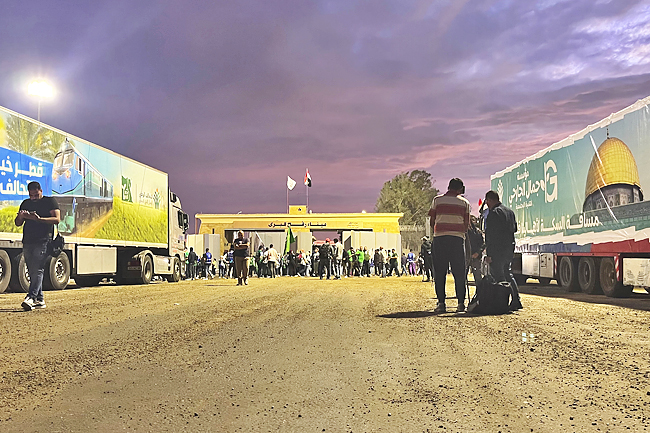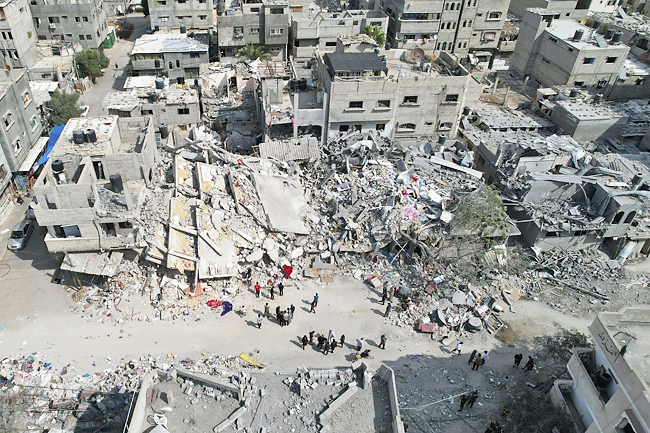GAZA STRIP (AFP) – Aid agencies on Monday called for vital humanitarian supplies to be allowed into the Gaza Strip, warning time was running out to save millions of people as water supplies dried up and food and fuel stocks dwindled.
Israel has been bombing targets in Gaza as part of its war on Hamas, whose fighters broke through the heavily fortified border on October 7 and killed more than 1,400 people, most of them civilians.
Israel’s relentless series of retaliatory air strikes have flattened neighbourhoods, killing at least 2,750, most of them ordinary Palestinians.
It has requested some 1.1 million Gazans – nearly half the population of 2.4 million – to leave the north of the densely populated enclave, in anticipation of a ground offensive against Hamas.
But in doing so – and cutting off water, food and fuel supplies until the conflict is over – it has heaped extra pressure on a territory already struggling under a years-long blockade.
As thousands massed on the Rafah border crossing with Egypt – the only one in the Gaza Strip not controlled by Israel – Prime Minister Benjamin Netanyahu ruled out a temporary ceasefire to allow aid supplies in or foreigners out.


On Monday evening, strikes hit an area near the crossing, an AFP reporter said. United Nations (UN) humanitarian chief Martin Griffiths headed to the Middle East yesterday, in the latest effort of frantic diplomacy to prevent the crisis worsening.
“We need access for aid,” he said in a video statement.
Regional Director of the World Health Organization Ahmed Al-Mandhari gave a stark warning about the situation, which he said was barrelling towards a “real catastrophe”.
“There are 24 hours of water, electricity and fuel left” in Gaza, he told AFP in an interview in Cairo.
If aid is not allowed in, doctors will have to “prepare death certificates for their patients”, he added.
Entire families, young children and the elderly have packed what belongings they can to flee to the southern Gaza Strip, bedding down in any available space, indoors and out.
The city of Khan Yunis, which is usually home to some 400,000 people, has more than doubled its population in days.
The UN agency supporting Palestinian refugees the UN Relief and Works Agency for Palestine Refugees in the Near East (UNRWA) said on Sunday that one million people had already been displaced in the first week of the conflict – but the number was likely to be higher.
There are fears, too, that more bodies could lie under the rubble of collapsed buildings, as hospital mortuaries are overstretched and bodies have even been stored in an ice-cream truck.
The Hamas government in Gaza recommended burying them in mass graves, while UNRWA said even body bags were in short supply.
The focus is now on the Rafah crossing, where a convoy of trucks with supplies is waiting on the Egyptian side.
“The situation is catastrophic beyond what I could have imagined,” said Palestinian-Swede Jamil Abdullah, who is hoping to leave after being forced to sleep on the street. “There are corpses in the streets. Buildings are crashing down on their inhabitants. Blood is everywhere. The smell of the dead is everywhere.”


